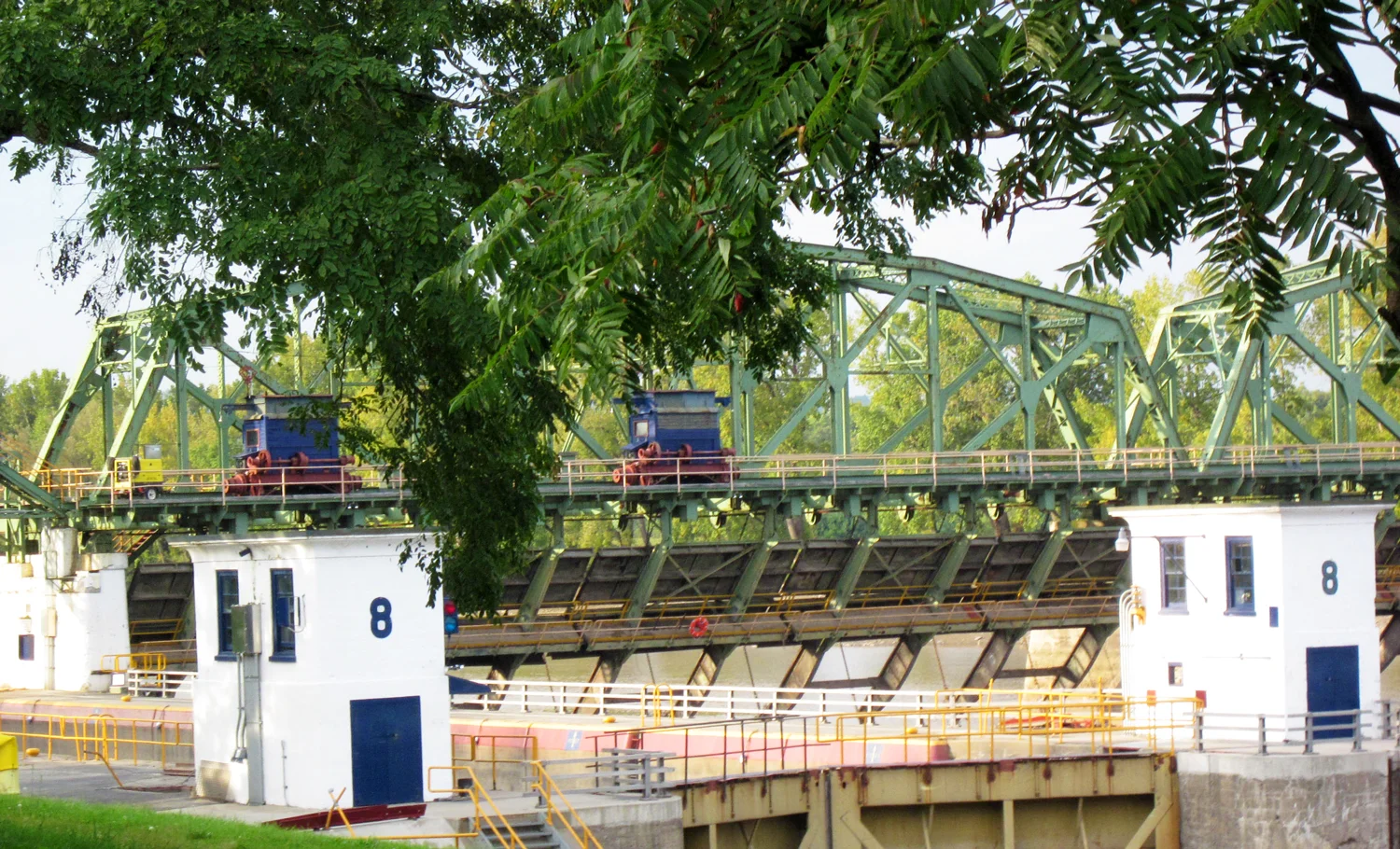The people of Schenectady were extremely displeased when they heard that the Erie Canal would run through their city. Merchants had already capitalized on riverfront business and believed that barges would take from this prosperity.
The canal was heralded by residents from New York City to Buffalo, but the few that celebrated its arrival in Schenectady were students of Union College.
As well as affecting the history of Schenectady, The Erie Canal also had a profound effect on the history Union College. After 1845, when the College opened its engineering program, most of the students studied and worked on the canal. In the 1830s, while he was still a student, Squire Whipple designed many of the canal's bridges.
From www.eriecanal.org
The residents of Schenectady had nothing to fear, however, as the canal quickly transformed the city into a bustling waterfront trade destination. Families made most of their living off the canal, driving tugboats and selling goods to travelers. Businesses stocked their warehouses high with new goods from New York City. The industrial community thrived off of new raw materials and foods. The practice of operating locks became an apprenticeship. In all, the canal was extremely lucrative for the city and quickly attracted thousands of newcomers.
In 2000, Union College students organized a city-wide appreciation day on the 175th Anniversary of the Erie Canal. They organized exhibits, re-enactments, and artifacts, including a working miniature of a lock that took no less than 1,500 hours to complete.
Schenectady will be the second stop on The Albany Symphony's Water Music Tour, celebrating the bicentennial of the historic Erie Canal. The concert will take place on July 3 at the Mabee Farm Historic Site, featuring "Beyond The Pines" by composer Annika Socolofsky, featuring the Capital Repertory Theatre.


